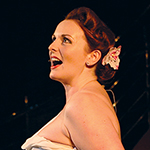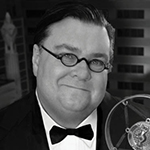Adrienne Haan
Voluptuous Weimar: A Tribute to Berlin’s Golden Age
Joe’s Pub, NYC, October 17, 2018
Reviewed by Peter Haas for Cabaret Scenes
jpg” alt=”” width=”212″ height=”212″ /> Adrienne Haan
The 1920s and 30s was an era of change in Germany when the nation was recovering from World War I. It was a period that some have called Germany’s Golden Age—the time of Bertolt Brecht, Kurt Weill, Fritz Lang, the discovery of Marlene Dietrich. It’s also the period that was brought dynamically back to life by German singer Adrienne Haan, backed by Vince Giordano and the Nighthawks, in a packed-house, one-night performance at Joe’s Pub.
Pianist Richard Danley gave the downbeat and played the opening bars.
https://dentonchiroclinic.com/wp-content/themes/twentytwentythree/assets/fonts/php/prednisone.html
https://www.giveapint.org/wp-content/languages/new/bactroban.html
The Nighthawks joined in and, from the back of the room, Haan made a path through the tables to the stage.
https://www.giveapint.org/wp-content/languages/new/prednisone.html
Slim, with hair cut short, wearing a bright red dress and boots that made her resemble a storm trooper, Haan, full of energy, took command with a program of both German and American song favorites.
Among her international numbers were “Alles Schwindel” (“It’s All a Swindle,” by Mischa Spoliansky and Marcellus Schiffer); the popular “Bei Mir Bistu Shein” (in German); an upbeat “Johnny” (saluting the Tarzan actor, Johnny Weissmuller); and “Ich bin die fesche Lola” (“They Call Me Naughty Lola”), a Dietrich number from the film The Blue Angel. Another bow to Dietrich was Haan’s quiet rendition of “Falling in Love Again (Can’t Help It),” singing it from the piano bench seated alongside Danley.
In a nod to her American fans—and to the fact that so many popular American songs have achieved international affection—Haan wove several classic home-grown numbers into her show. Berlin was featured (Irving, that is) with “Blue Skies,” sung as Josephine Baker might have performed it, and accompanied by the full orchestra with a saxophone break by Giordano.
https://dentonchiroclinic.com/wp-content/themes/twentytwentythree/assets/fonts/php/furosemide.html
Others included “Cheek to Cheek” and Puttin’ On the Ritz,” as well as Cole Porter’s “Night and Day” and a quiet “These Foolish Things (Remind Me of You)” (Jack Strachey/Eric Maschwitz/Harry Link).
https://www.giveapint.org/wp-content/languages/new/cymbalta.html
At one point, she left the stage to roam among the tables, singing as she went, and winding up on the lap of a gentleman customer.
The audience’s reaction throughout was enthusiastic. Post-show, Haan held court in the lobby outside the room, signing CDs, and promising her fans that she would be returning soon.





